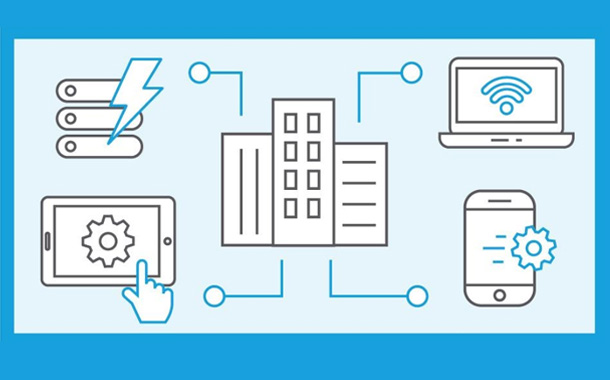The global software as a service (saas) market was valued at about $134.44 billion in 2018 and is expected to grow to $220.21 billion at a CAGR of 13.1% through 2022.
The Software as a Service (SaaS) market consists of sales of cloud based software services. SaaS is a software solution which can be purchased on a subscription or pay per use basis to use an application for organizational purposes and customers can access this application over internet, mainly through a web browser. All the applications data and software are located in the services provider’s data center. SaaS allows an organization to run an application at minimal upfront cost and speeds up overall functionality of the organization.
The software as a service market has been geographically segmented into North America, Western Europe, Asia-Pacific, Eastern Europe, South America and Middle East & Africa. The North American market is the largest market for software as a service and is expected to continue to be the largest market during the forecast period.
Rapid changes in business dynamics in the market are expected to benefit the software as a service (SaaS) market in the forecast period as cloud-based solutions support business operations in changing conditions. Dynamic market conditions include economic uncertainty, competitive rivalry and the increasing adoption of mobile, changing regulations, internet usage and applications.
These conditions along with the increasing number of infrastructures and established networks have forced organizations to pursue scalable and flexible solutions such as SaaS and other cloud enabled services to run and supervise their operations in a cost-effective and efficient way. These factors have also compelled companies to outsource applications and prefer cloud computing services like SaaS to reduce their cost burden on infrastructure. Companies that seek services from a third party vendor are more likely to get better performance, compliance and customer satisfaction at a low cost.
However, increasing threats on data security especially on cloud platforms are expected to limit the growth of companies in the software as a service market.
The threats on data security include industrial espionage and hacking which resulted in multiple breaches of data security involving public cloud environments. These breaches are mainly because of the negligence the cloud service providers. In addition, many companies lack trust in data security when outsourcing from a third party vendor. As vendor has access to organization’s data, companies fear the misuse of data which might affect organization’s reputation.
For example, Code Spaces, a former SaaS provider, discontinued its operations as hackers had access to their cloud services and stole all their data due to which Code Spaces faced damages in its reputation, finances and business.
The introduction of artificial intelligence is gaining popularity in the SaaS market. Artificial Intelligence (AI) is an area of computer science which focus on the simulation of human intelligence processes by machines. AI in SaaS helps companies to upgrade themselves from time to time with the latest data, create better user experience through predictive analytics, automate the areas where manual functions were required previously and personalize user interface features.
For example, Oracle, a big player in SaaS market uses AI and machine learning to overtake salesforce in SaaS. This indicates that AI and machine learning would be differentiating factors for the growth of SaaS market.
The General Data Protection Regulation (GDPR) break the split of regulations for the security of personal data in the European Union. It makes provisions to protect personal data and privacy of EU citizens for transactions that happen within EU member states. It also regulates the export of personal data outside the EU.
There could be data-subjects that patronize the subscriber that are located in the EU, even if a single SaaS subscriber is based in a non-EU location and the SaaS application is based in a non-EU location. This may cause the subscriber to follow the GDPR regulations. For instance, Intercom, a US-based SaaS provider is shortening its time of storing data on visitors to customers’ sites by deleting the visitor data if a visitor has not been seen for nine months to comply with the GDPR.


